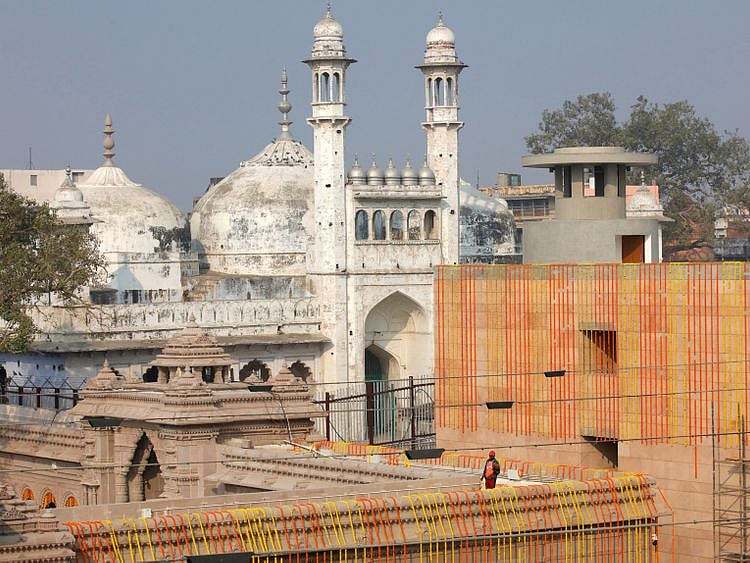India’s top court overturns ban on large prayer gatherings in mosque
Muslims right to prayer should not be disturbed, ‘relics area’ should be protected

New Delhi: India’s Supreme Court on Tuesday overturned a local order to ban large Muslim prayer gatherings in a high-profile mosque in north India after a survey team said it found relics of the Hindu deity Shiva and other Hindu symbols there.
The top court in an interim order stated Muslims right to prayer should not be disturbed, and simultaneously the area where Hindu religious relics were said to be found should be protected.
The disagreement over rights to worship at the mosque follows a decades-long campaign by Hindu activists to show that key Muslim-built buildings in India sit atop older holy sites. A previous dispute 30 years ago led to fatal rioting.
The Supreme Court order comes a day after a local court in Varanasi - Hinduism’s holiest city and the site of the historic Gyanvapi mosque - ruled Islamic gatherings there should be limited to 20 people.
The local court had ordered the survey of the mosque after five women sought permission to perform Hindu rituals in one part of it, saying a Hindu temple once stood on the site.
The Gyanvapi mosque is one of several mosques in northern Uttar Pradesh that some Hindus believe was built on top of demolished Hindu temples.
Hardline Hindu groups have stepped up demands to excavate inside some mosques and to permit searches in the Taj Mahal mausoleum.
Judges of the top court will continue hearing from Hindu and Muslim petitioners this week.
Leaders of India’s 200 million Muslims view the survey inside the mosque as attempts to undermine their rights to free worship and religious expression.
In 2019, the Supreme Court allowed Hindus to build a temple at the site of the disputed 16th century Babri mosque that was demolished by Hindu crowds in 1992 who believed it was built where Hindu deity Ram was born.
The demolition led to religious riots that killed nearly 2,000 people, mostly Muslims, across India.
Sign up for the Daily Briefing
Get the latest news and updates straight to your inbox
Network Links
GN StoreDownload our app
© Al Nisr Publishing LLC 2025. All rights reserved.